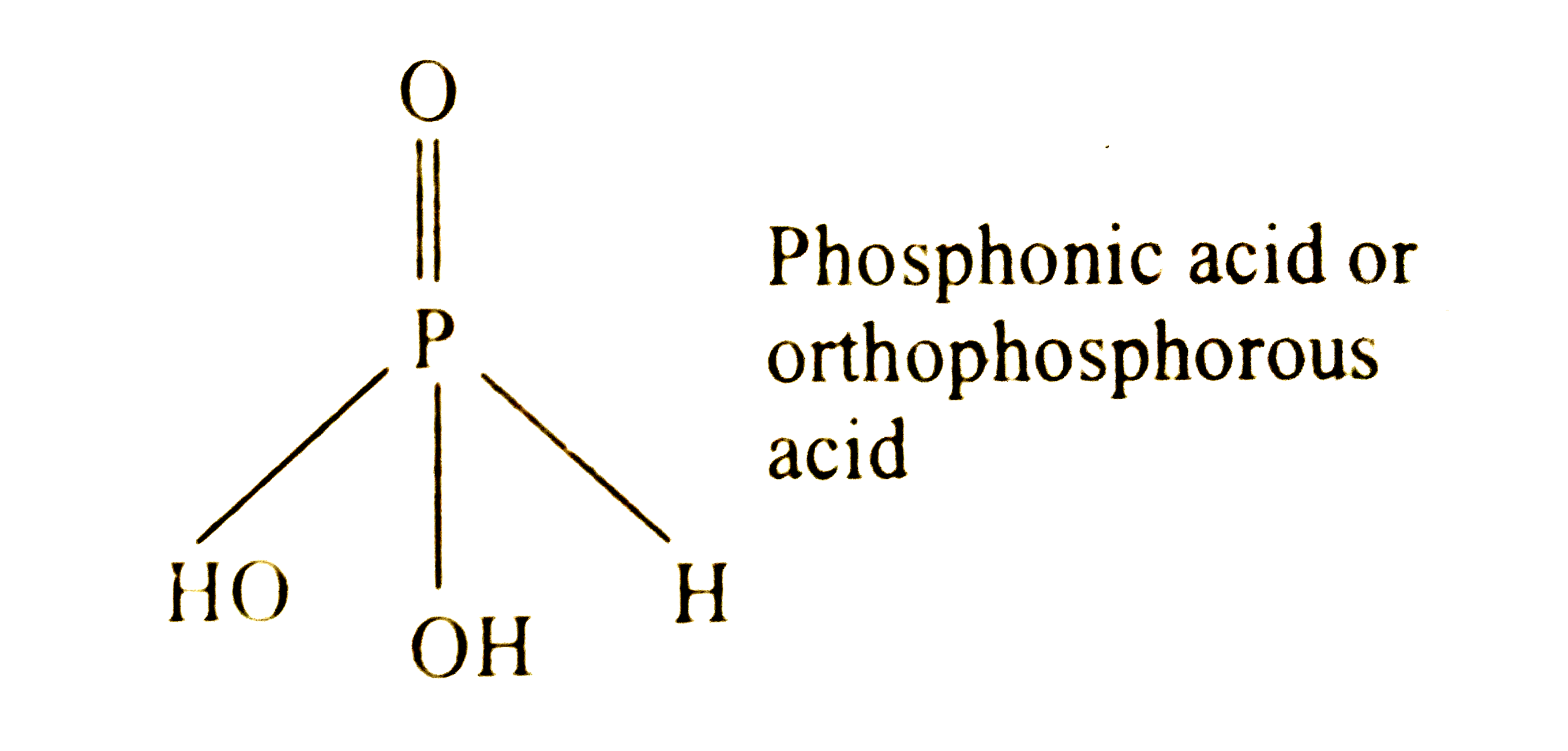(a) what happens when
(i) Chlorine gas is passed though a hot concentrated solution of NaOH?
(ii) sulphure dioxide gas is passed through an aqueses solution of Fe (III) salt?
(b) Answer the following :
(i) what is the basicity of H3PO3 and why?.
(ii) why does fluorine not pay the role of a central atom in interhalogen compounds ?
(iii) Why do noble gases have very low boiling points ?
(a) (i) 3Cl2+6NaOH→NaCl+NaCl+NaClO3+3H2O.
(ii) Fe (III) Salt it reduced to Fe (II Salt) 2Fe3++SO2+2H2O→2Fe2++SO42−+4H−
(b) (i) It has one P= O, one P- H and two P-OH bonds. Since it has tow P-OH bonds, so it has two ionisable H atoms. Therefore, it behaves as dibasic or diprotic.

(ii) Fluorine done not paly the role of a central atom in interhalogen compounds because it is more electronegative elements and cannot exhibit any poisitive oxidation state.
(iii) Noble gases have low boiling point because atoms are held logether by weak vander waals force. Hence their boiling point is low.
Topper's Solved these Questions
Similar Questions
What happens when chlorine gas is passed through a hot concentrated solution of NaOH ?
View SolutionWhat happens, when chlorine gas is passed through a hot concentrated solution of NaOH ?
View SolutionWhat happens when fluorine gas is passed through water?
View SolutionWhat happens when sulphur dioxide gas is passed through an aqueous solution of Fe(III) salt ?
View SolutionWhat is the basicity of H3PO2 acid and why ?
View SolutionWhat happens when sulphur dioxide is passed through an aqueous solution of Fe(III) salt?
View SolutionWhat happens when sulphur dioxide is passed through an aqueous solution of Fe(III) salt?
View SolutionWhat happens, when sulphur dioxide gas is passed through an aqueous solution of a Fe(III) salt
View SolutionWhat happens when sulphur dioxide gas is passed through an aqueous solution of Fe(III) salt ?
View SolutionWhat happens when sulphur dioxide is passed through an aqueous solution of Fe(III) salt ?
View Solution
